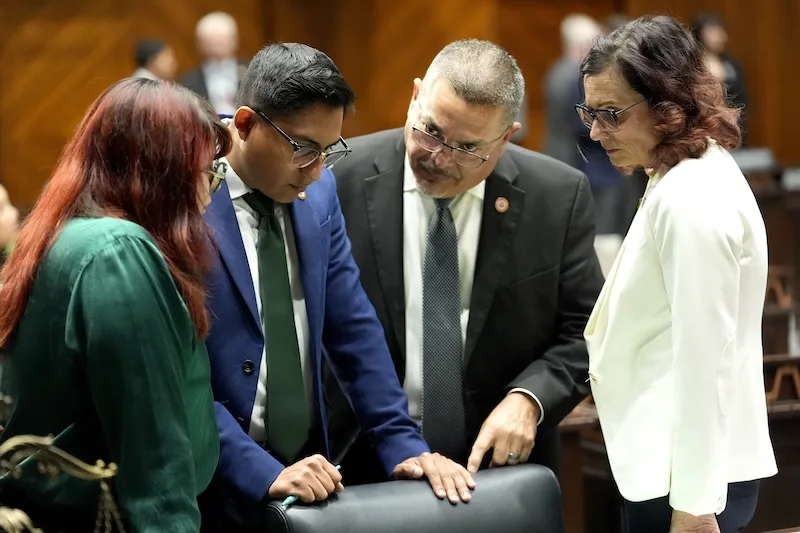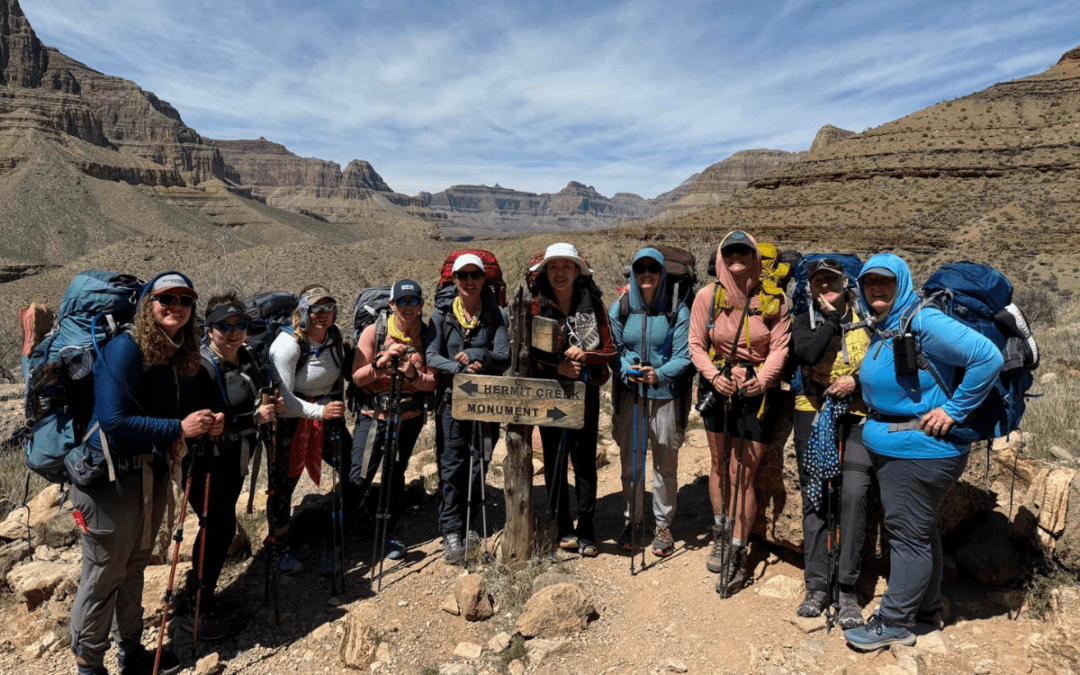
Waiter Joe Zarate, of Tempe, Ariz., delivers food to one of his tables as hundreds of patrons take advantage of the Denny's free Grand Slam Breakfast national giveaway at a local Denny's restaurant Tuesday, Feb. 9, 2010, in Tempe, Ariz. (AP Photo/Ross D. Franklin)
Seven states—Alaska, California, Minnesota, Montana, Nevada, Oregon, and Washington—have already eliminated a subminimum tipped wage.
Arizona voters could have the chance to eliminate the state’s tipped minimum wage in 2024 if labor advocates can gather enough signatures to get the One Fair Wage Act on the ballot.
Currently, employers can count up to $3 an hour of an employee’s tips to satisfy the minimum wage requirement of $13.85 an hour. This means the employer only has to pay tipped employees $10.85 an hour if a worker made enough tips to cover that $3 gap.
The One Fair Wage Act ballot initiative would gradually reduce the gap between the regular minimum and tipped wages, eliminating the tipped wage by 2027.
RELATED: Union Membership in Arizona Inches Up, Still Trails Most of the Nation
Jim Barton, a local attorney involved in filing the initiative petition, said many employers exploit the current law by paying workers $3 an hour less than the minimum wage and never taking the time to figure out if the tips they earned actually increased their earnings to match the minimum wage.
“I think as a matter of justice, it’s important that everyone make the minimum wage,” Barton told The Copper Courier.
Seven states—Alaska, California, Minnesota, Montana, Nevada, Oregon, and Washington—have already eliminated a subminimum tipped wage.
The initiative would also raise the minimum wage for all workers by an additional $1 on top of cost-of-living increases in 2025 and 2026.
Service Workers in Support
Mercedes Morales, a Tucson resident who has worked in the service industry for 10 years, said she wants to see the One Fair Wage Act passed because tips can be unreliable.
“You get a bad section or just in general with even the pandemic, with it being so slow, sometimes there would be times where you go home with no money,” she told The Copper Courier. “Your hourly is just not really helping out as much as you would like to. You have to think about spending to get to work and to get home from work … it costs money.”
Maricela Gutierrez, co-organizing director of One Fair Wage, the advocacy group behind the ballot initiative, also worked in the service industry.
She said the subminimum tipped wage should be eliminated in part because it is rooted in slavery. Tipping has been a practice in the US since before the Civil War, but it was used after the passage of the 15th Amendment to keep former enslaved peoples’ wages low.
Gutierrez also noted that workers who rely on tips often have to deal with sexual harassment as a result of the dynamic tipping creates between customer and worker. According to a report from the Center on Poverty and Inequality at Georgetown Law, women who rely on tips for most of their pay are twice as likely to be harassed compared to women working in states without a tipped wage.
“People don’t realize that it is very grueling work to deal with the general public,” Gutierrez said. “You don’t know who you’re going to handle. And so, this is a very valuable job, and not everybody can do [it], so we do need to pay people professional wages.”
Lastly, Gutierrez said eliminating the tipped wage would help level the playing field for employers who are already trying to do the right thing and pay workers more. Competitors could pay their workers the subminimum wage and therefore be able to offer goods at cheaper prices, she said.
She noted that the passage of the proposal wouldn’t eliminate tipping—just the ability for employers to pay less than the minimum wage.
“It’s not an either/or,” she said. “You get your fair wage plus your tips on top, and your tips are not subsidizing poverty wages, they’re in addition to your fair wage.”
Gutierrez said the campaign aims to collect over 500,000 signatures in the next two years to get the proposal on the ballot.
Anyone wanting to get involved can sign up at bit.ly/raiseaz, or they can email [email protected].
Looking for the latest Arizona news? Sign up for our FREE daily newsletter.
Politics

Democrats clear path to bring proposed repeal of Arizona’s near-total abortion ban to a vote
Democrats in the Arizona Senate cleared a path to bring a proposed repeal of the state's near-total ban on abortions to a vote after the state's...

It’s official: Your boss has to give you time off to recover from childbirth or get an abortion
Originally published by The 19th In what could be a groundbreaking shift in American workplaces, most employees across the country will now have...
Local News

How Arizona women are helping each other gain confidence in outdoor adventuring
Two female-oriented outdoors groups in Arizona encourage women to get on the trails, and to not be afraid of doing it solo every once in a while....

Why these Arizona parents choose to take their kids to Drag Story Hour
Parents who seek out a safe, diverse, and inclusive space for their children to get involved in early literacy head to Drag Story Hour. Tania G.*...





